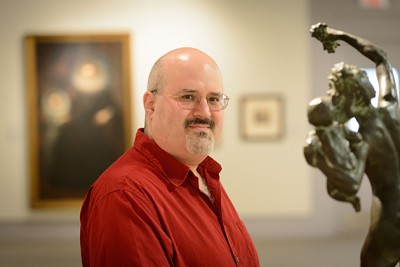
Robin Williams’ suicide was a staggering blow to the multitude of fans who recognized and praised his tremendous talents on stage, television and in film. While the disconnect between Williams’ effusive positive energy – his public persona – and the shocking details of his death stirred many emotions, it is also a potent reminder of the struggles creative individuals endure and the sad history of suicide among the writers, performers and other artists among us.
But is there a link between creativity and mental illness? The trope that has emerged of the sad clown or, more broadly, the creative genius tormented by inner demons may not, in fact, be true. Decades of research has not unequivocally established a link between creativity and mental illness. As an educational psychologist, I’ve thought and written a lot about creativity and mental illness over the last 15 years. It is a topic at the center of my professional life. I have come to find it is also a topic that fascinates and enrages; what psychologists often consider to be data points are also human lives. People identify with being creative and people identify with mental health. But merging the two is a different matter altogether. And it is hard to discuss the nuance of specific scientific studies in the face of actual suffering.
What we are left with are two very significant questions: Are creative genius and mental illness related? And, what does this mean for me if I am creative? The answers are quite different.
Scientists argue both sides of the first question. Some scholars say that not only are creativity and mental illness related but it’s undisputed fact. Others claim there is not a shred of evidence connecting the two concepts. I fall somewhere in the middle; much of the classic work is unbelievably flawed, but there’s too much of it to dismiss it completely. This question has great importance if we want to understand the workings of a genius like Robin Williams.
The second question relates to the average person. Many people see creativity as an integral part of their life, and it can take many shapes. Maybe you play guitar or tinker in your garage or make fantastic lasagna or can tell the best jokes at a party. This everyday creativity – the joy from the process – is something all of us have felt and enjoyed.
Yet, if I am creative, am I also at greater risk for mental illness? If Robin Williams, with such amazing creative gifts, was unable to keep perspective, then what does that say about the rest of us and our own paltry attempts at contributing something new and original to the world?
The key is not to make that leap. Creative genius, or what researchers call the “Big-C,” is a different beast from everyday creativity, or what we like call the “little-c.” Microwaved chicken nuggets and baked Chicken a la King at the fancy restaurant in town are both chicken, but their nutritional value and their taste are radically different. It’s the same thing with “Big-C” and “little-c.” Whatever researchers conclude about Big-C and mental illness – and any connection, if there is one, is more nuanced than we like to admit—there is no association between little-c and mental illness. Everyday creativity is linked to higher resiliency, being in a better mood, having less stress, and better physical health.
Ruminations about Robin Williams, Sylvia Plath, or Ernest Hemingway may turn our thoughts to the connection between creative genius and mental illness. But the subject – if not the people – is still an open book.
James Kaufman is a professor of educational psychology at UConn. His book Creativity and Mental Illness just came out and is available on Amazon.com.
 Facebook
Facebook
 Twitter
Twitter
 LinkedIn
LinkedIn
